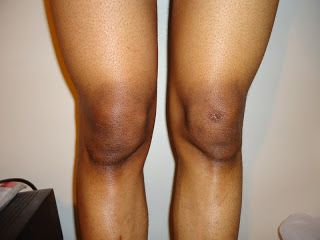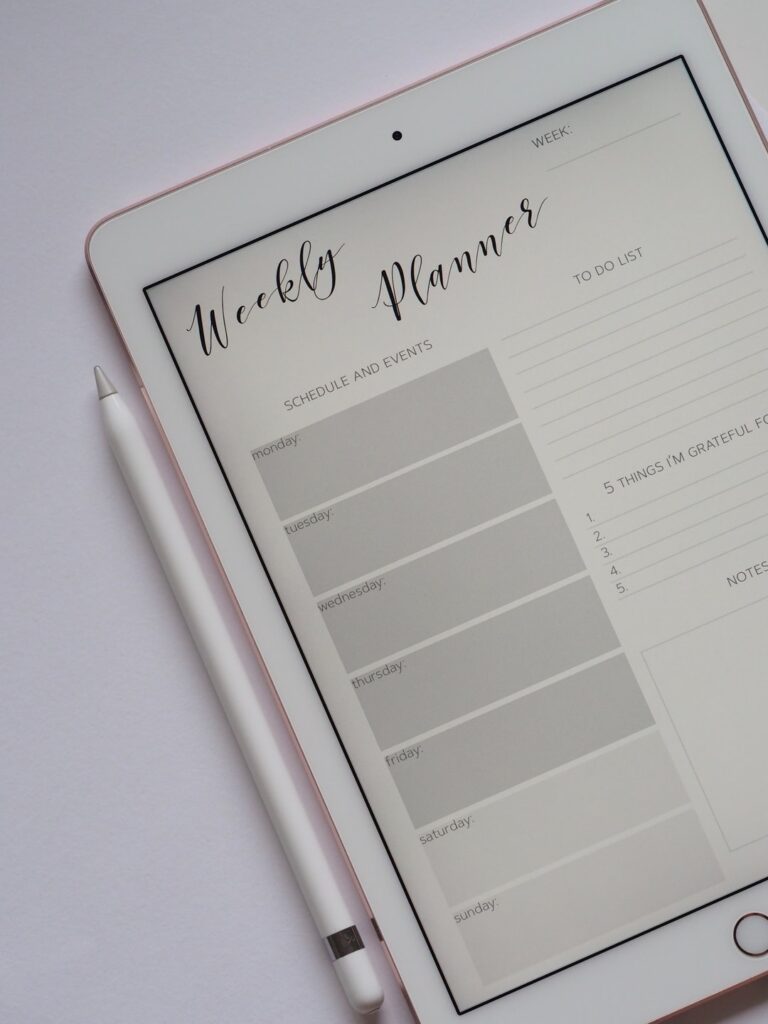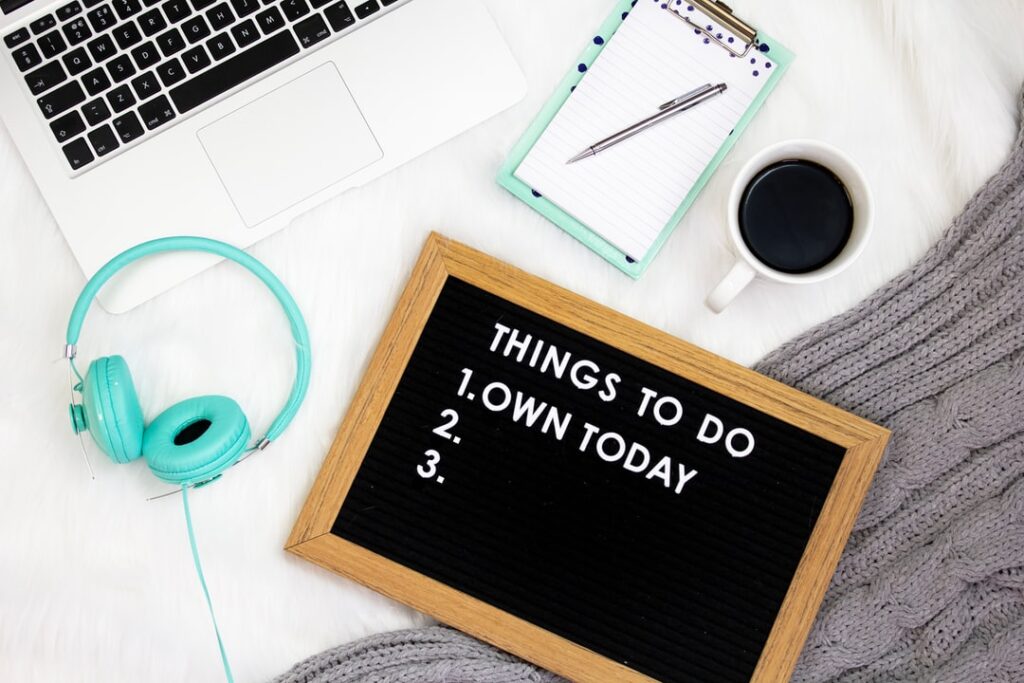Have you ever heard the saying, ‘the only thing we have to fear, is fear itself’? Simply put, it essentially suggests that if you spend all of your time worrying about how bad things are going to be in the future, you could easily end up stuck in the past. Not to mention the fact that you won’t be able to enjoy the present if you’re living your life consumed by fear and feeling anxious for no reason.
Anxiety itself can come from a variety of stressors, such as medical conditions, relationship issues, and money matters. By definition, anxiety generally refers to ‘an intense, excessive, and persistent worry and fear that is out of proportion to normally occurring situations that we experience. Some of the most common symptoms of anxiety include insomnia, racing thoughts, poor concentration, irritability, restlessness, palpitations, trembling, nausea, and sweating.’
Similar to your favourite video game, obstacles in life tend to get a lot more challenging the further along you go, increasing your level of stress as you reach each milestone or complete each mission. No one is immune to experiencing stress.
If you’re alive, you’re going to feel some form of stress at one point or another in your life, it’s inevitable. And as most of us already know by now, having too much stress in our lives can lead directly to severe anxiety.
So now, let’s take a look at some anxiety-busting strategies to help you cope more effectively with the severe and debilitating experience of feeling anxious for no reason.
1. Set Realistic Goals
Although you may be able to accomplish anything that you put your mind to—such as losing weight, improving your relationships, or making more money—carefully consider the level of stress involved in whatever it is that you intend to do.
Become a student of your surroundings. Learn as much about the people, places, and things in your life as possible. Whether your dream is to bring the world closer together by creating a brand new social media platform or to open up a cool corner cafe in your own hometown, you’re going to have to be able to cope with some form of stress to make whatever you decide to do in your life a success.
With that said, set goals that are challenging but attainable with hard work and determination.
2. Set Firm Boundaries
Map out your emotional territory. From the very beginning of history, conflict has been an inherent part of the human experience. The more conflict, the more stress, and the more stress, the more anxiety, and so on.
Besides learning how to strengthen your body and soul, you can significantly reduce symptoms of anxiety by taking better care of your mind. When you set firm boundaries with others, you give yourself the emotional space to process the value of relationships on your terms.
Let the people that surround you know exactly what you are willing to do and how far you are willing to go. Ultimately, this will help you avoid feeling overwhelmed by setting realistic and manageable expectations with others.
3. Set Priorities
Choose your emotional battles wisely. Not every stressful situation necessarily leads to debilitating symptoms of anxiety. Rather than trying to tackle the most profound obstacles in your way all at once, reverse triage the situation by chipping away at smaller issues first.
Consider taking on challenges that you feel you can manage effectively with the least amount of effort. Get the momentum going as you lead with your strengths. And then, as you begin to break through each obstacle in your way, take a personal inventory of your accomplishments. Take note of all the progress that you were able to make along the way, as well as how you were able to muster up the courage and internal fortitude to keep moving forward even in your most difficult and precarious moments.
4. Pace Yourself
When you’re feeling anxious for no reason, one of the best things to do is to pace yourself. Life is a marathon, not a sprint. The key to longevity in whatever you do is setting a manageable pace to avoid burning out before you make it to the finish line.
So, try not to get ahead of yourself as you work your way up and through the gauntlet of impending issues that we will all ultimately face along the way in life. Rome wasn’t built in a day, neither will your own personal empire, no matter how entrepreneurial or emotionally fuel-efficient you may be.
Rather than trying to accomplish all of your goals as fast as possible, you may be better off striving to reach attainable milestones on your journey. Whether you’re dealing with problems at work or home, do as much as you can to address and resolve your issues without getting yourself stressed out and overwhelmed.
And if you just can’t get a handle on the situation, know when to say when. You just may need to step away from the battle for a moment or two, so that you can ultimately return to the front and fight the good fight another day emotionally re-energized.
5. Talk to Someone
You can’t see the forest from the road. That is unless you’re able to somehow see above the treeline. Many of us experience tunnel vision when we’re dealing with something that we perceive to be a major problem in our lives. We find ourselves consumed with the circumstances that surround whatever it is that’s bothering us while losing sight of many of the other important things in our lives.
Taking the time to talk through your greatest fears with the right person can help you break through even some of the most seemingly impenetrable walls of anxiety that you have ever experienced. Talk therapy works if you work it.
In other words, if you want to change the fruit, you have to start at the root. The more you open up to another person about the things that make you feel anxious, the less likely those things will negatively impact your life moving forward.
6. Breathe
Have you ever worried about something so much that you actually ended up feeling physically sick, emotionally drained, even gasping for air? I know that I have. Sometimes, we may feel anxious for no reason.
If you haven’t realized it by now, life is like a perpetual obstacle course. It’s full of ups and downs, plenty of unexpected twists and turns, a bunch of hurdles, and even a few trap doors along the way. However, rather than being the first to arrive at an actual finish line, you may want to focus your attention on simply being able to make it through to the other side successfully, accomplishing as much as you can in your life-time with as much peace of mind as possible.
Holding your breath until you get what you want might work a few times when you’re a child but not at all when you’re an adult with responsibilities like paying your bills and maintaining healthy relationships with others. With that said, at one point or another, you are going to have to come up for air to help clear your mind and replenish the oxygen in your lungs. Similar to pre-flight instructions, if there’s a problem in the air, you have to put your oxygen mask on first.
Conclusion
In conclusion, no matter how cool, calm, and collected you may appear to be at one point or another in your life, you are going to experience stress in one form or another. Too much stress can ultimately lead to a variety of debilitating symptoms of anxiety, which in turn, negatively impacts your quality of life.
Now, more than ever, as we all learn how to adapt to our post-pandemic new-normal world, many of us are experiencing symptoms of anxiety no matter how hard we try to manage the level of stress in our lives. By learning how to effectively cope with anxiety, we can ultimately break right on through it so that we can live an even more productive and fulfilling life.
Nevertheless, perhaps the most common-sense strategy to reduce experiencing symptoms of anxiety is to avoid putting yourself in highly stressful situations in the first place if possible.











